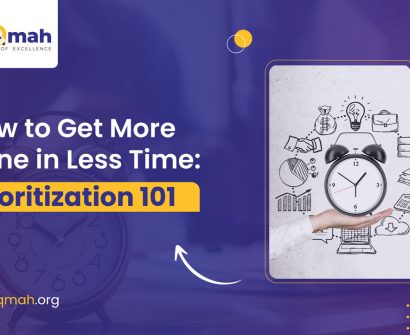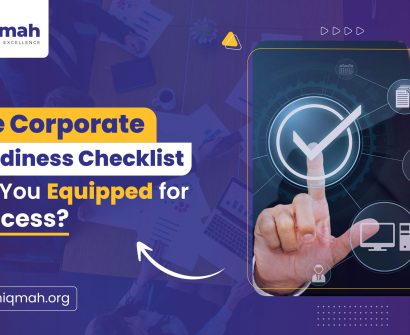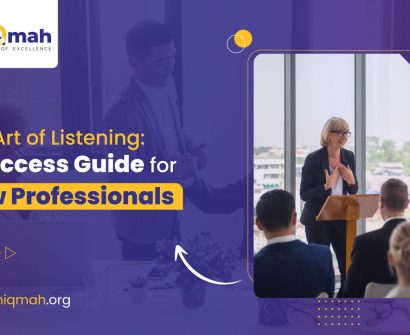
Navigating the early stages of your career comes with the challenge of constantly learning and growing. A vital aspect of this growth is learning how to handle feedback effectively. For new graduates entering the corporate world, feedback can sometimes feel overwhelming, but it’s one of the most powerful tools for professional development. According to a Gallup study, employees who regularly receive feedback are 3.6 times more likely to be engaged at work. How you respond to and apply feedback can significantly impact your career trajectory.
This guide will help you understand the importance of feedback and equip you with actionable strategies to handle it like a pro, ensuring that you grow from every constructive criticism you receive. Feedback is essential for growth in the corporate world, and new graduates must learn to welcome and respond to it in a productive way to improve continuously.
Steps to Handle Feedback Like a Pro:
- Adopt a Growth Mindset:
Shifting your mindset to see feedback as an opportunity rather than criticism makes a world of difference. Research by Stanford psychologist Carol Dweck shows that people with a growth mindset perform 50% better when facing challenges than those with a fixed mindset. This mindset also encourages resilience in the face of tough feedback.
- Listen Actively:
Active listening enhances understanding by capturing spoken words and their intent, fostering better communication and relationships. While listening is 45% of communication, most people retain only 25 percent of what they hear. Having complete attention, asking clarifying questions, and accurately interpreting feedback will help avoid missed insights, build trust, and improve collaboration and decision-making.
- Ask Clarifying Questions:
Ask for specific examples, such as “Can you give me a specific example?” to ensure you understand the feedback. This minimizes misunderstanding and demonstrates further commitment to learning. Harvard Business Review reports that employees who request clarifying feedback are more likely to successfully meet their goals because they are acting in step with expectations.
- Take Time to Reflect:
Jumping to conclusions may lead to impulsive actions. Take a step backward, reflect on the feedback received, and plan your response carefully. Neuroscience suggests that reflection activates the brain’s default mode network, helping with problem-solving and improved decision-making.
- Create an Action Plan:
An action plan is a tool for translating feedback into tangible improvement. A Gallup survey shows that 69% of employees are highly engaged when doing something toward a specific goal that matches the feedback. Break the feedback into action steps and formulate measurable objectives for continuous improvement.
- Seek Regular Feedback:
Request constant feedback so you’re on track rather than waiting for the formal reviews. Research finds that employees who receive continuous feedback are nearly three times more engaged than those who do not. Proactively seeking feedback also signals managers that you’re serious about personal growth.
- Show Gratitude:
A simple “Thank you for this feedback” will take you a long way. Showing appreciation strengthens relationships and underscores that you value other people’s time and effort. According to the research of the Greater Good Science Center, showing gratitude increases your emotional resilience by 25%, making it easier to receive future feedback constructively.
- Don’t Take It Personally:
Feedback is a critique of your work, not your identity. Emotionally detaching from feedback ensures you stay objective and use it to your advantage. Instead of reacting defensively, try to understand the message. Gather areas of potential improvement and what you could do better from the criticism. Constructive criticism offers precious insights to improve, hone your skills, boost performance, and develop resilience.
- Follow Up:
Although feedback is a criticism of your work and not your identity, emotionally detaching from it ensures that you stay objective and use it to your advantage. Implementing feedback is only half the job; following up shows you’re serious about improvement. Checking in with your manager or peers helps gauge your progress and opens the door for additional insights. This step reinforces accountability and builds trust in the workplace.
- Keep Improving:
Improvement is a continuous growth process. Acting on previous advice demonstrates your commitment to personal and professional growth. The willingness to learn will build trust with others and open doors to new experiences that could lead to new opportunities. Feedback isn’t an event; it’s a persistent process of refining one’s skills over time, making them more adaptable and effective. A continuous learner inspires those around them and builds positive development in their environment.
Conclusion:
Effective feedback handling is a skill that sets successful professionals apart. By adopting the right mindset and following these steps, you can turn every piece of feedback into an opportunity for growth. It’s not about getting everything right from the start but constantly improving.
If you want to develop more professional skills like these, our Corporate Readiness Program at HiQmah offer in-depth guidance on navigating feedback, improving communication, and excelling in your career.
Register today to access our exclusive training and set yourself on the path to success!
Want to learn more about thriving in today’s competitive job market? Join our upcoming free webinar, “Career Planning in a Dynamic Job Market,” for exclusive insights and strategies to elevate your career! Register Now!





